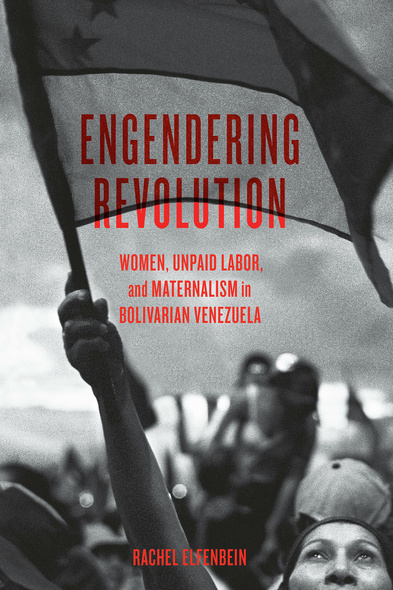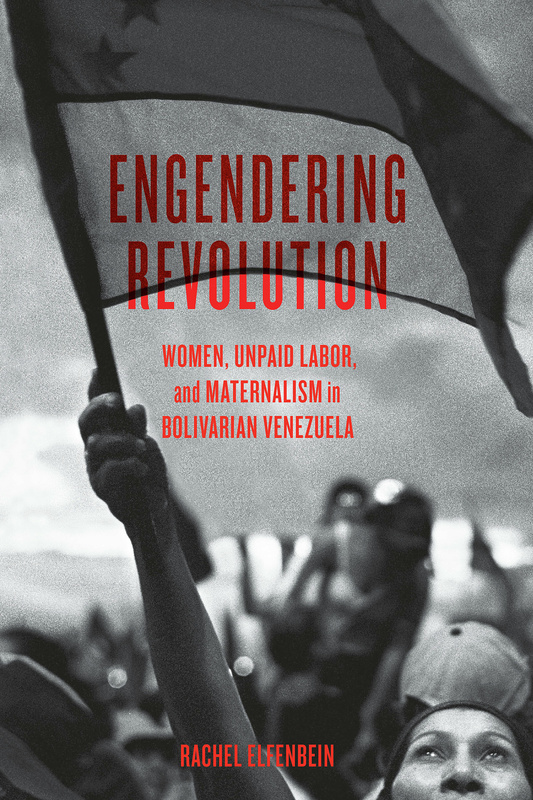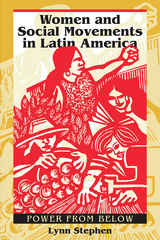
Engendering Revolution
Women, Unpaid Labor, and Maternalism in Bolivarian Venezuela
In 1999, Venezuela became the first country in the world to constitutionally recognize the socioeconomic value of housework and enshrine homemakers’ social security. This landmark provision was part of a larger project to transform the state and expand social inclusion during Hugo Chávez’s presidency. The Bolivarian revolution opened new opportunities for poor and working-class—or popular—women’s organizing. The state recognized their unpaid labor and maternal gender role as central to the revolution. Yet even as state recognition enabled some popular women to receive public assistance, it also made their unpaid labor and organizing vulnerable to state appropriation.
Offering the first comprehensive analysis of this phenomenon, Engendering Revolution demonstrates that the Bolivarian revolution cannot be understood without comprehending the gendered nature of its state-society relations. Showcasing field research that comprises archival analysis, observation, and extensive interviews, these thought-provoking findings underscore the ways in which popular women sustained a movement purported to exalt them, even while many could not access social security and remained socially, economically, and politically vulnerable.
[A] well executed book…[Elfenbein] makes a strong case for why a gendered lens is indispensable to understanding Venezuela’s Bolivarian revolution and politics more generally...Engendering Revolution is an exceptional contribution to our gendered understanding of revolutionary states.
A rich and engaging history...Engendering Revolution adds a critical dimension to existing work on women and the Bolivarian revolution by addressing the burden of popular women’s unpaid work, the ways it buttressed the Bolivarian state, and what Elfenbein would describe as the continued reproduction of hegemonic gender roles in the revolutionary process...Engendering Revolution is revealing in its mapping of the history of women’s organizing and mobilization before and during the time of Chávez. Its thorough treatment of the subject and engagement with the gendered nature of the state, state power, and state-society relations remind the reader that gender relations are indeed power relations, and that women’s visibility and mobilization may not necessitate power.
[Elfenbein] offers a radical view of the Bolivarian revolution that has been unavailable in the past, as she not only makes women visible within the movement but portrays their socio-political and economic participation as being vital to the continuation of Chávez’s leadership...Engendering Revolution is a must-read for all scholars of gender relations, social reproduction, social movements and the state, as it makes an especially unique and powerful contribution to the discussion of the Bolivarian process in Venezuela.
A pioneering and in-depth study…In addition to being a broad, arduous, and rigorous research from a methodological point of view, Engendering Revolution provides sociological, ethnographic, and political results that, under a gender perspective, reveal in different ways the dynamics between the working class women and their organizations, but also the Bolivarian revolutionary state during the Chávez mandate...Elfenbein conducts a masterful extended case study with a methodology that she adapted in a creative manner to the social reality under study...this overwhelming book offers a new way of approaching the gender role and gender justice in Venezuela, a thorough research that seeks to find the essence of the dynamics of relations between the state and poor women and their organizations in that country.
Rachel Elfenbein invites us to see Hugo Chávez’s Venezuela through a gender lens, drawing on feminist theory and a rich ethnography to provide a pathbreaking, critical, and original analysis of the policies and politics associated with Chavismo. Engendering Revolution deals with Chávez’s political mobilization of women and their later disillusionment, revealing the ways in which gender inequality was deeply imbricated in the laws, policies, and rhetoric of his revolutionary project. This book needed to be written, and in writing it, Elfenbein has made an outstanding contribution to the study of revolutionary states, as well as Latin American and gender studies.
This insightful book demonstrates that Venezuela’s Bolivarian revolution, which claimed to have a ‘woman’s face,’ depended on poor women’s unpaid work. Deploying a wide-ranging ethnographic analysis, Rachel Elfenbein explores the reality behind Venezuela’s pathbreaking constitutional recognition of reproductive labor within a context of political and social polarization. She shows how the ‘revolutionary maternalism’ of twenty-first-century socialism translated into a profound reliance on women to support their families, communities, and the polity itself. By centering the lives of poor homemakers, Elfenbein reveals the significance of gender relations to the revolution and its impact on some of its hardest-working citizens.
- List of Tables and Images
- Acknowledgments
- Glossary of Abbreviations and Terms
- Introduction. The Unpaid Labor and Suffering of the Women Undergirding the Bolivarian Revolution
- Chapter 1. Out of the Margins: The Struggle for the Rights to State Recognition of Women’s Unpaid Housework and Social Security for Homemakers
- Chapter 2. Between Fruitless Legislative Initiatives and Executive Magic: Contestations over the Implementation of Homemakers’ Social Security
- Chapter 3. State Imaginations of Popular Motherhood within the Revolution: The Institutional Design of Madres del Barrio Mission
- Chapter 4. Regulating Motherhood in Madres del Barrio: Intensifying yet Disregarding the Unpaid Labor of the Mothers of the Bolivarian Revolution
- Chapter 5. In the Shadows of the Magical Revolutionary State: Popular Women’s Work Where the State Did Not Reach
- Chapter 6. Mobilized yet Contained within Chavista Populism: Popular Women’s Organizing around the 2012 Organic Labor Law
- Conclusion: Imagining a More Dignified Map for Popular Women’s Unpaid Labor and Power
- Notes
- References
- Index








